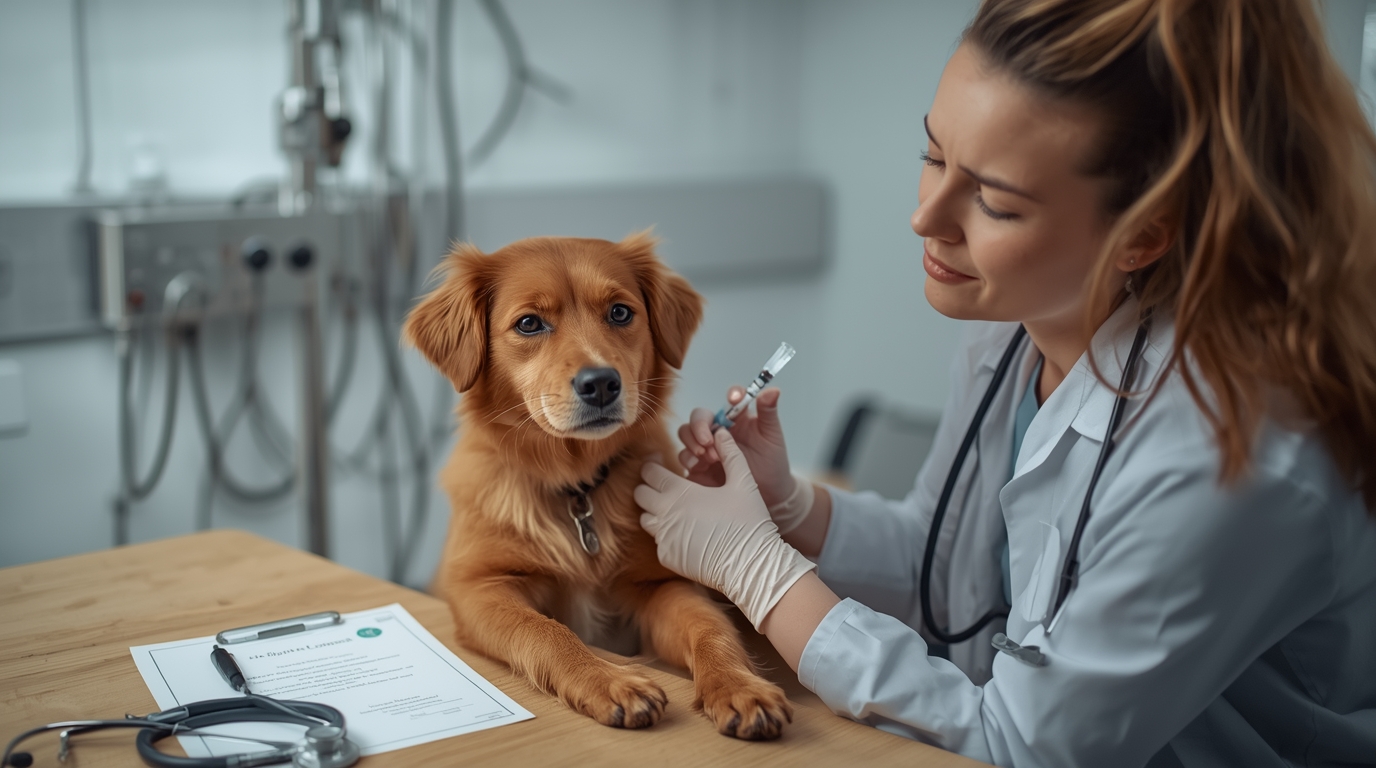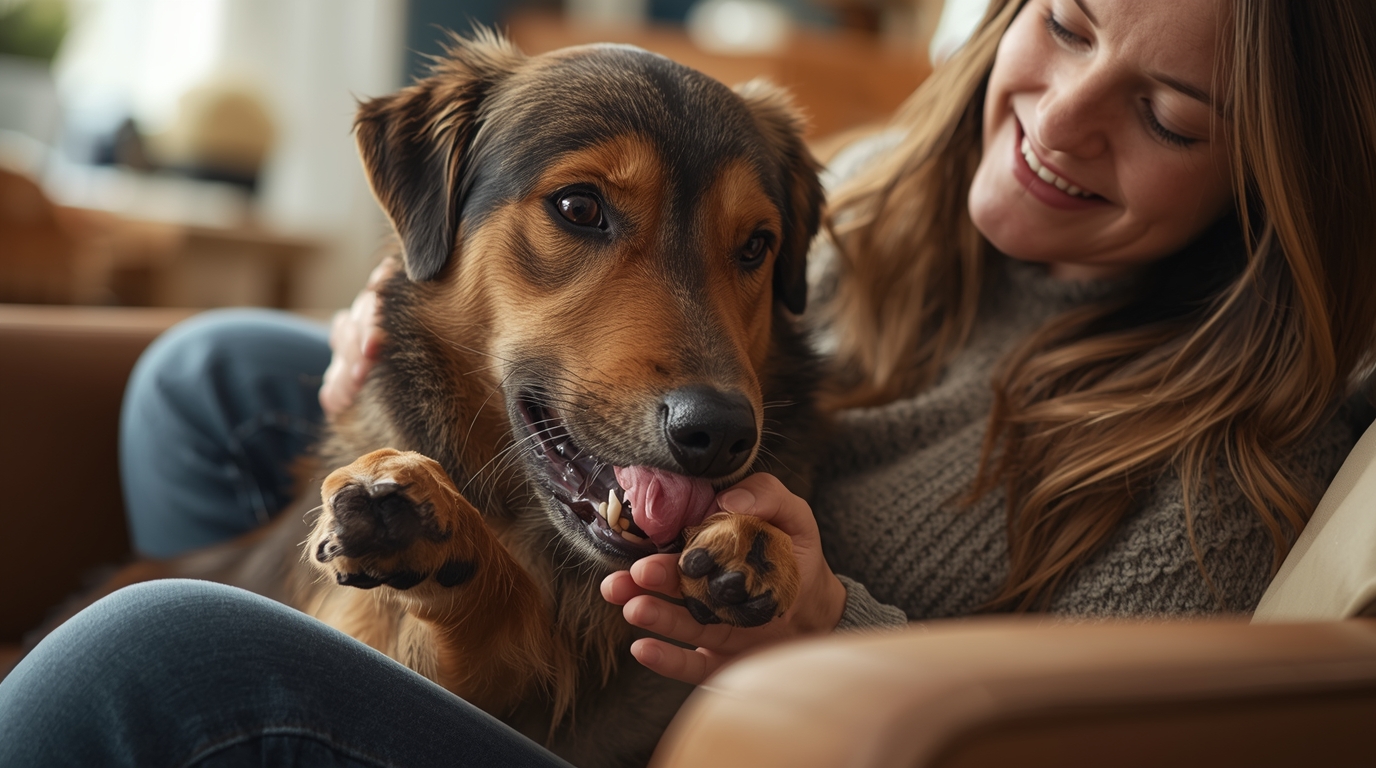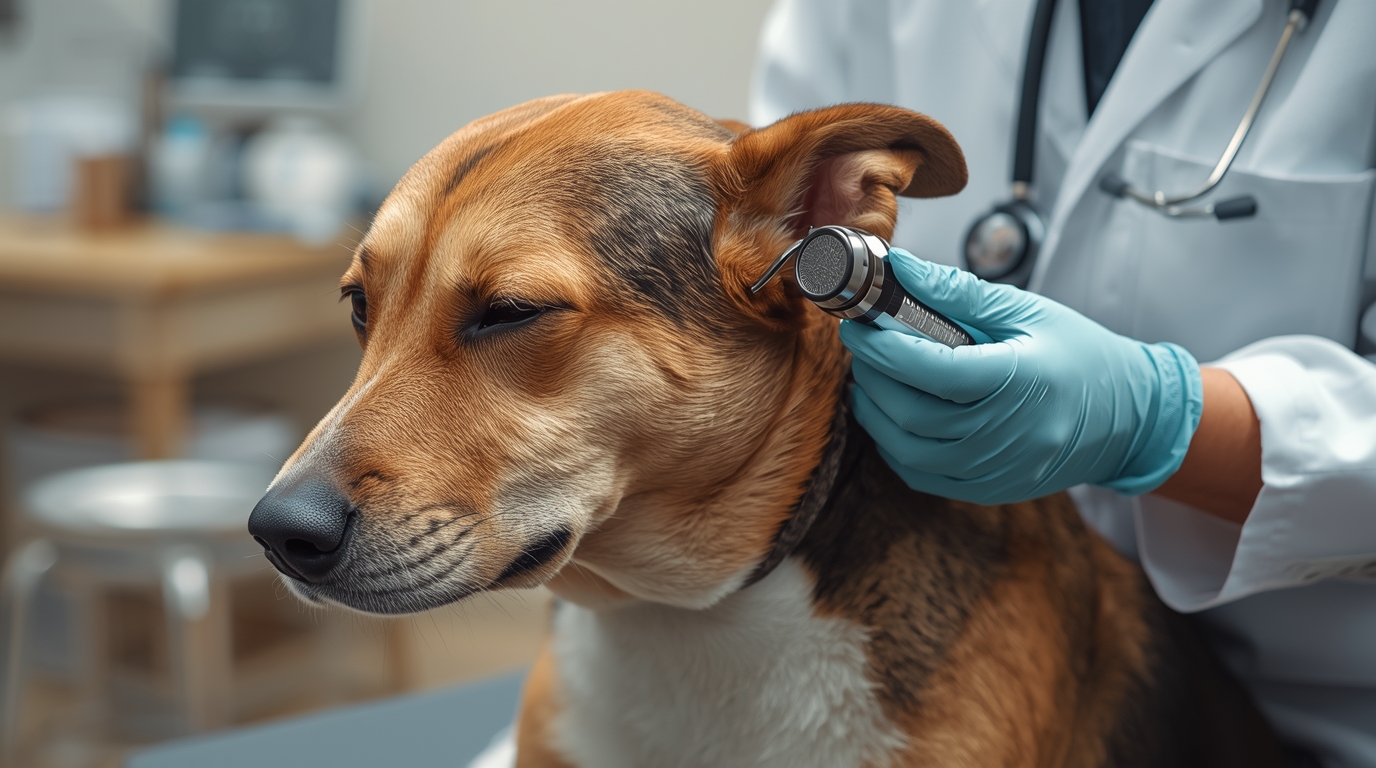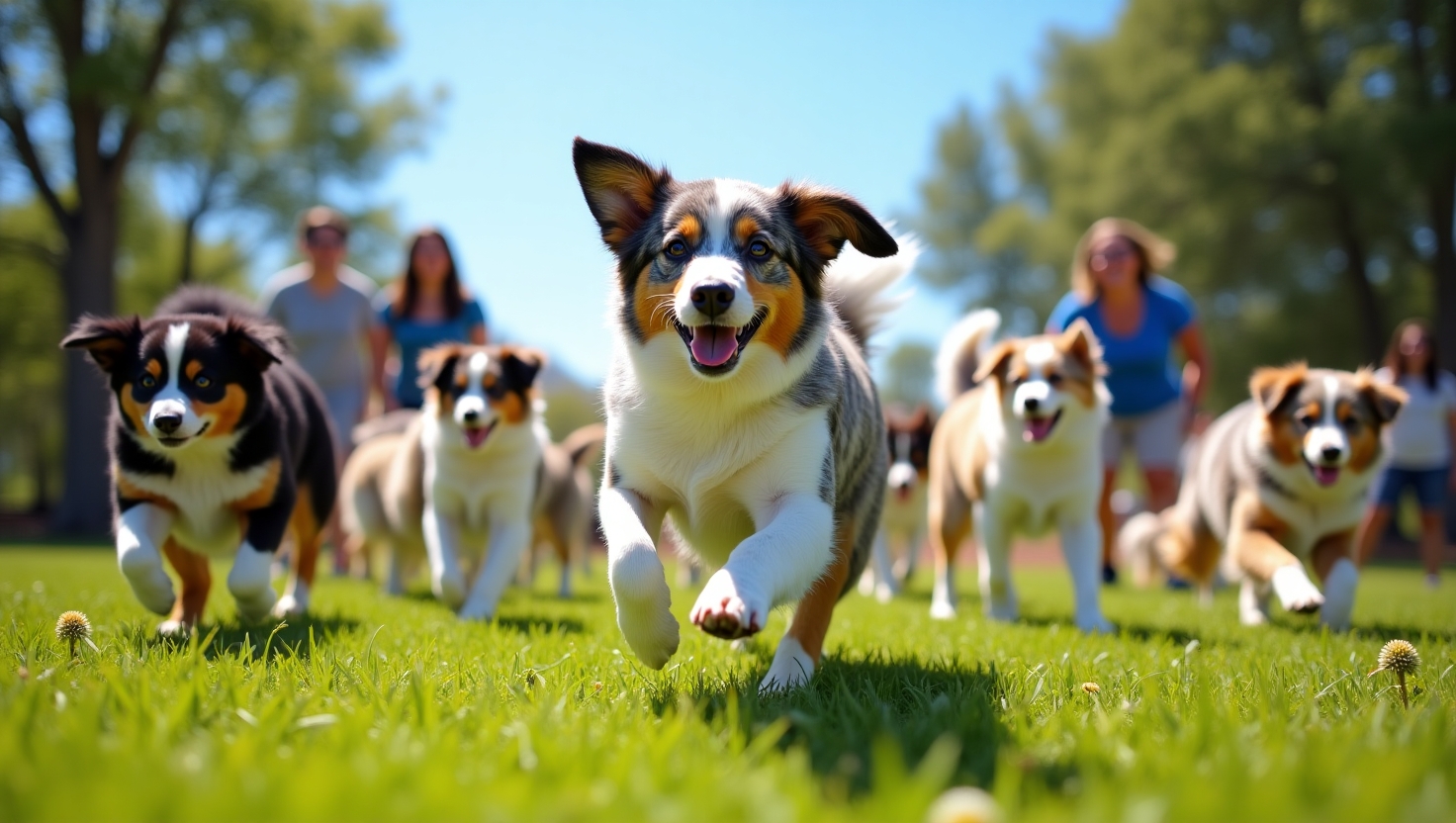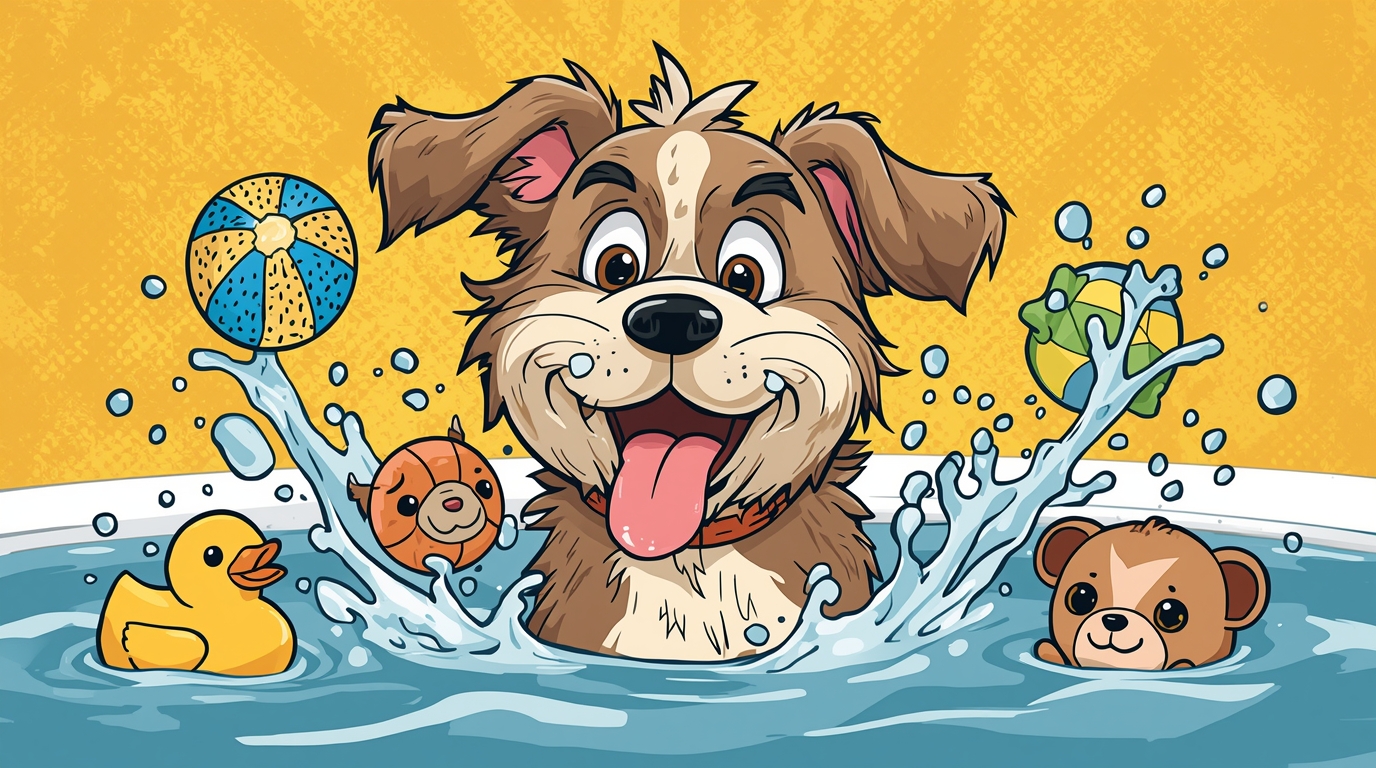Introduction:
Vaccinations are perhaps the best thing you can provide your dog. It’s like a protective shield from severe diseases. In Australia, it is crucial to follow a correct dog vaccination schedule so that you can protect your furry buddy’s health and the well-being of the larger pet community.
Along the way, I will take you through the vaccination process from when your puppy first receives vaccinations to how those vaccinations continue on through their senior years all explained in an easy-to-understand, friendly manner and based on Australian vet recommendations.
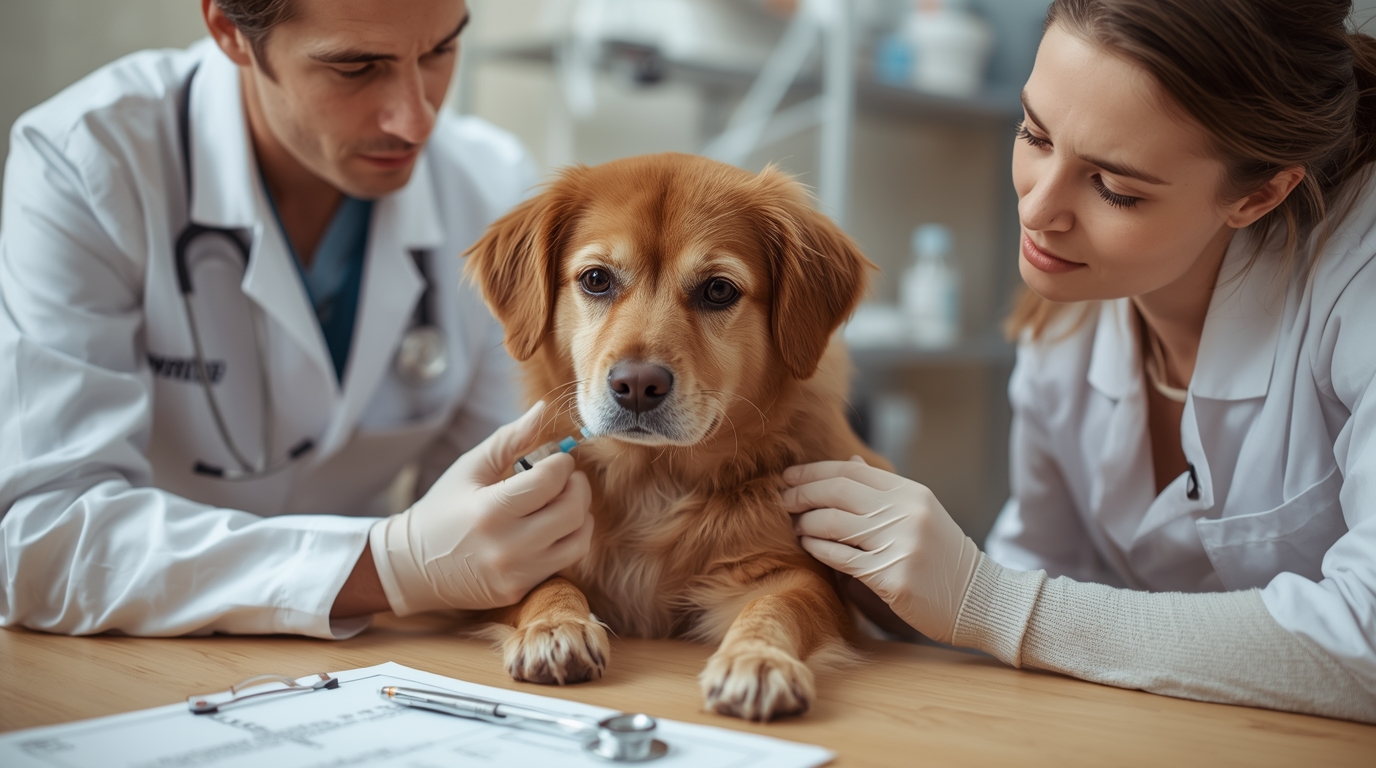
Why Vaccinations Matter
In Australia, viral outbreaks such as parvovirus still occur recently, and cases in Latrobe Valley, Ballarat, and Tasmania reminded us of how lethal parvo is, particularly in unvaccinated puppies.
Vaccines enable your pup to develop its own defense (immunity) against kennel cough, distemper, dengue-like hepatitis, and yucky parvo. Keeping your dog up to date with their vaccination program is one of the easiest methods of safeguarding them.
Puppy Vaccination Schedule Australia
Puppy Phase (6–16 weeks)
6–8 weeks: Initial core vaccination C3, distemper, parvovirus, and canine hepatitis.
10–12 weeks: Second vaccine is usually a C5 adding kennel cough protection (Bordetella and parainfluenza).
14–16 weeks: Final puppy booster C3 or C5, depending on your vet’s schedule.
16–18 weeks (optional): Leptospirosis vaccine, for dogs in high-risk areas prevalent in northern Australian regions or wet areas.
Why are multiple doses? Puppies depend on mother-to-baby immunity that wanes. Multiple doses, given over a period of time, give your pup’s immune system enough time to establish solid, long-term immunity.
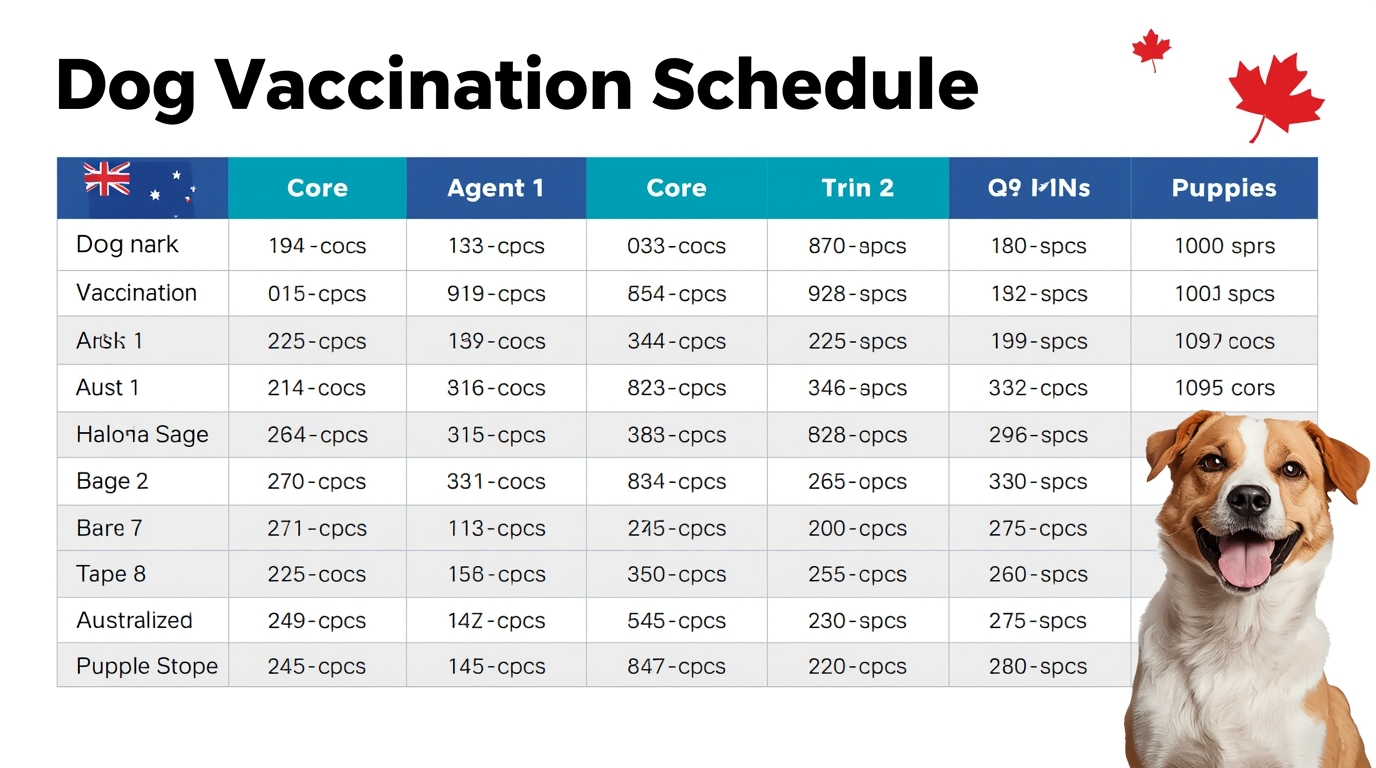
Adult Dog Vaccination Schedule
After your pup completes their first shots, the adult dog vaccination schedule takes over:
Core vaccines are essential for every dog; these typically include distemper, hepatitis (adenovirus), and parvovirus (C3 group).
Non-core vaccines are optional but recommended based on your dog’s lifestyle and location. These cover kennel cough (Bordetella, parainfluenza) and leptospirosis.
Additionally, rabies shots aren’t used in Australia unless your dog is travelling overseas.
Local Considerations Within Australia
- Incidents of parvovirus outbreaks in Victoria reinforce timely vaccinations particularly core C3 and C5.
- In Queensland, an increase in parvo cases underscores early protection of town dogs.
- In Tasmania, sporadic parvo infections indicate a necessity to remain alert even in previous low-risk areas.
Understanding Vaccine Costs
Vaccinations are an important investment in your pup’s health:
| Vaccine Type | Cost Estimate (AUD) |
| C3 series | $170–$250 for all puppy doses |
| C5 (annual) | $90–$150 |
| C7 (includes leptospirosis) | Around $135 |
Some modern vaccines reduce frequency and improve longevity of immunity.
When to Begin Socialising Your Puppy
Socialisation is perhaps the most significant aspect of developing a well-adjusted, joyful dog. It has to be accomplished safely, though. Puppies can start going out into the world around 10–14 days from the last vaccination shot. This waiting period allows their immune system time to completely react to the vaccines. Taking your puppy out to the park, training sessions, or doggy daycare prematurely might expose them to ailments they are not yet fully immunized against. After being safe, socialisation keeps Behavioural problems such as fear or aggression at bay and your pup grows up confident and adjusted.
Side Effects & Safety
Vaccinations are made to safeguard your dog, and the overwhelming majority of pets tolerate them extremely well. Following a vaccination, some dogs might have very slight side effects like short-term swelling at the site of injection, mild lethargy, or a low-grade fever. These typically pass in a day or two and aren’t anything to worry about.
In some instances, more extreme reactions are possible. Vomiting, staggering, extreme lethargy, or labored breathing are symptoms that need to be heeded. If you see any of these, call your vet at once. Fortunately, these extreme reactions are rare, and the benefits of vaccination greatly outweigh the risks.
Why Staying Current Is Important
It’s not just about keeping your dog protected; keeping their vaccinations up to date also protects society as a whole. In locations such as Australia, where dogs frequent parks, beaches, boarding kennels, or daycare, unvaccinated dogs can easily transmit disease to others. Vaccines serve as a barrier, keeping your dog healthy while also minimizing outbreaks among other canines. This is particularly significant with diseases such as parvovirus, which can linger in the environment for months and infect any unsuspecting pup. Being up to date is both your individual responsibility for your dog’s health and the community’s responsibility to ensure all animals are safe.
FAQ
1.At what age should puppies receive vaccinations?
Puppies need to commence vaccination at 6–8 weeks of age. This is the point when their natural antibodies from their mother begin to decline, making them more susceptible to diseases such as parvovirus and distemper. After the initial shot, they will require booster shots at 10–12 weeks and then once more at 14–16 weeks to be able to develop robust and long-term immunity. It’s like adding layers of defense until their immune system becomes powerful enough to fight the disease on its own.
- When can puppies socialize?
Socialisation is important for pups, but it must be done in a safe way. Your pup can begin going to dog parks, puppy classes, or making new doggy pals around 10–14 days post their last puppy vaccine. This wait time will help their immune system fully react to the final vaccination. Going too fast will expose them to deadly viruses, so it’s best to be patient. When vaccinated, they can have playdates and adventures outdoors at much less risk.
- How often after that?
Once your dog is past the puppy phase, his core shots (parvo, distemper, and hepatitis) are normally boosted every 3 years. Non-core shots such as kennel cough or leptospirosis are normally given every year, depending on your dog. For instance, if your puppy attends dog daycare, resides in kennels, or resides in disease risk areas, annual boosters are necessary. Your veterinarian will individually design a program so your dog is receiving the appropriate protection without excessive shots.
- Are vaccines costly?
Yes, it does cost, but it’s a worthwhile investment in your dog’s health. In Australia, the puppy vaccination course typically costs anywhere from $170–$250 for the full course, and annual boosters for an adult dog about $90–$150. It’s an added expense, perhaps, but to treat diseases like parvovirus costs thousands of dollars and, sadly, often too many pups don’t make it. Vaccination not only costs less; it’s also much more humane for your dog.
- Can indoor dogs skip vaccines?
It’s a widespread myth that indoor dogs don’t require vaccines. Even when your dog stays indoors most of the time, risks of disease are present. Parvo viruses, for instance, can linger in soil and be brought inside on shoes, clothing, or even other animals. Mosquitoes and other insects spread certain diseases as well. That’s why core vaccines should never be omitted regardless of your dog’s lifestyle. Vaccinating your indoor dog means they’re protected against unseen dangers.
Check this: Dog Apparel Clothes: A Complete Guide for Aussie Pet Parents
Final Thoughts
A strong dog vaccination schedule protects your dog throughout its life from adventurous puppy days to relaxed senior years. In Australia, where infectious diseases can still appear, staying current with vaccines isn’t optional, it’s a vital part of responsible pet parenting.
Keep in close touch with your vet, tailor vaccinations to your dog’s lifestyle, and rest easy knowing you’re keeping them and your community safe.

